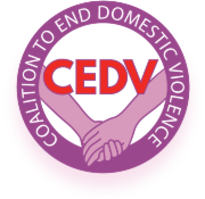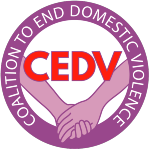PRESS RELEASE
Contact: Rebecca Stewart
Telephone: 513-479-3335
Email: info@EndToDV.org
Vague ‘Coercive Control’ Bill Will Dilute Law Enforcement Resources, Sideline Victims of Physical Violence
WASHINGTON / February 21, 2022 – HB 1901, which seeks to expand the definition of domestic violence to include “coercive control,” will dilute and divert limited law enforcement and judicial resources away from victims of physical violence. The Coalition to End Domestic Violence calls on Washington lawmakers to reject SHB 1901. (1)
The U.S. Centers for Disease Control reports that In Washington state, there are 372,000 victims of partner physical violence, sexual violence, or stalking each year. In contrast, there are nearly twice as many victims of coercive control: 693,000 persons each year. While a majority of victims of physical violence, sexual violence or stalking are female, most victims of coercive control are male, reports the CDC. (2)
The existing definition of domestic violence is explicit and clear-cut. In contrast, SHB 1901 defines “coercive control” as “a pattern of behavior that is used to cause another to suffer physical, emotional, or psychological harm, and in purpose or effect unreasonably interferes with a person’s free will and personal liberty.”
The proposed definition of coercive control is so broad and poorly defined that virtually every adult in the state could be seen as having engaged in such actions sometime in their lifetime. Three examples reveal how provisions in the proposed bill could be easily misused:
- “Harm the other party’s career” – such as a wife urging her husband to spend less time at the office?
- “Driving recklessly with the other partner or minor children in the vehicle” – does a speeding ticket constitute “reckless”?
- “forcing the other party to relinquish goods, property, or items of special value” — even those items that belong to the first party?
SHB 1901 also seeks to outlaw efforts to moderate a partner’s over-spending habits. In one case, a woman sought to pay off her pre-marital credit card balance of $30,000 by obtaining a new credit card and transferring her prior debts to the new card. Her new husband was forced to suspend the credit card or face bankruptcy. It took him several years to pay off the $30,000 debt. The husband’s reasonable and necessary efforts to restore the family finances could be seen as falling within the scope of “coercive control.”
Washington women commit 62% of all coercive control incidents, according to the CDC. This language from SHB 1901 may often apply to female abusers: “controlling, exerting undue influence over, interfering with, regulating, or monitoring the other party’s movements, communications, daily behavior, finances, economic resources, or employment.”
SHB 1901 will exacerbate tensions in couples who are experiencing normal marital disagreements, and incentivize false allegations. In light of recent budget cuts to the Seattle Police Department (3) , SHB 1901 will divert limited law enforcement resources away from the persons who need them the most: the victims of physical violence and sexual assault.
SHB 1901 betrays the victims of partner violence (4). Senators should vote ‘No’ on SHB 1901.
Links:
- https://lawfilesext.leg.wa.gov/biennium/2021-22/Pdf/Bill%20Reports/House/1901%20HBR%20CRJ%2022.pdf?q=20220211062837
- https://www.cdc.gov/violenceprevention/pdf/nisvs-statereportbook.pdf Tables 5.8, 5.10, 5.14, and 5.16.
- https://www.usnews.com/news/best-states/washington/articles/2021-11-23/city-council-cuts-seattle-police-budget-drawing-criticism#:~:text=The%20Seattle%20City%20Council%20has,more%20spending%20on%20public%20safety.&text=In%202021%20budget%20was%20%24363,2020%20is%20was%20%24401.8%20million.
- https://endtodv.org/camp/coercive-control/


